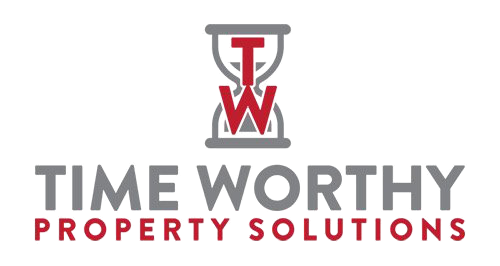The word foreclosure can definitely leave you with an uneasy feeling. But home foreclosure in Indiana is not that uncommon for a lot of people. In 2017, Indiana was ranked 12th for most foreclosures in all 50 states, and one in every 1,769 households was in foreclosure. So if you’re facing foreclosure, you’re not alone! But once you’ve received that notice in the mail, it’s time to act. Taking steps to sell your home before foreclosure will save you a lot of time and trouble, as well as, help the health of your credit score. So if you’re dealing with an Indiana foreclosure, here are 5 steps you should take to sell your house before foreclosure in Indiana.
How To Sell Your House In Foreclosure In Indiana

Step 1: Act Fast
When you receive a pre-foreclosure notice from your lender, it’s time to make a game plan. Firstly, under federal law, your lender must contact you to discuss ways to avoid foreclosure. The mortgage company must contact you no later than 36 days after the missed payment. Also, no later than 45 days after the missed payment, the lender must inform you in writing about loss mitigation, which are foreclosure alternatives that might be available to you. Some examples of loss mitigation plans include:
- Repayment Plans
A repayment plan adds past due amounts to the borrower’s mortgage payment to be repaid for however many months it takes to bring the mortgage current. This plan gives the borrower time to catch up on late payments without having to come up with a big lump sum payment.
- Forbearance Plans
This type of plan allows the borrower to make either reduced mortgage payments or no mortgage payments until the borrower improves their financial situation. Forbearance is usually granted if a borrower is in a temporary or short term financial difficulty. And after the forbearance period, the borrower is expected to pay any missed payments or amounts, which is generally paid with a repayment plan or modification.
- Short Sale
Selling your property in a short sale is a foreclosure alternative. The borrower sells their home for less than the total balance remaining on the mortgage. By selling the house, the borrower can pay off a portion of the mortgage balance with the profits. Keep in mind that the borrower may be asked to pay off the remaining balance of the mortgage. The perk of a short sale is that it helps the borrower transition out of their home without going through Indiana foreclosure.
- Deed In Lieu of Foreclosure
This alternative is where the borrower voluntarily hands over the property ownership to the owner of the mortgage in exchange for relinquishing the mortgage loan and payments. However, something to note is that the borrower may need to pay off the remaining balance of the mortgage if the value of the home is lower than the outstanding amount. This option also allows the borrower to relocate from the house without going through the Indiana foreclosure process.
As tempting as some of these options sound, especially any that allow you to keep your house, just understand that your financial situation will need to change so that you won’t be in the same position down the road. Just remember whatever you decide to do, make your decision quickly; the sooner you can stop the foreclosure process, the better. If you wait too long to decide or don’t communicate your intentions to your lender, the Indiana foreclosure process will continue to move forward. Just know lenders don’t want to foreclose on your house if they don’t have to, but if you don’t communicate your plan, they will need to move forward and take the necessary steps. Worst case scenario, if you don’t take steps to stop foreclosure in Indiana, you can end up losing your house and ruining your credit score.
Step 2: Find a Buyer
Finding a buyer to purchase a house facing foreclosure can be tricky, but there are options out there. Ideally, you want to find a buyer that will buy your house on your terms and quickly. Two options to sell your home would include a short sale and selling to a local homebuyer.
Selling in a Short Sale
In a short sale, the lender holding the mortgage must sign off on the decision to complete a short sale. A short sale makes it harder to find a buyer because the lender approves or disapproves of any offer made on the house while for sale. Short sales are known to be lengthy and paperwork-intensive. And unlike its name, a short sale can take up to a full year to process. With the combination of these factors sometimes prospective homebuyers shy away from purchasing short sale properties. Also, in a short sale, the house is being sold for less than the balance remaining on the mortgage, so the house will sell for less than what is owed, possibly holding you responsible for the remaining balance as well as closing costs and realtor commissions.
Selling to a Local Home Buyer
Another option for selling a house facing foreclosure in Indiana is to sell to a local homebuyer. Unlike a short sale, a homebuyer can purchase your home with cash and close within 7-14 days. Furthermore, since you’re selling directly to them, a real estate agent doesn’t have to be involved saving you 6% in commissions. When working with a homebuyer, another cost saver is that they don’t charge fees and even help pay towards closing costs. If you are interested in working with a local homebuyer to avoid foreclosure in Indiana, make sure to notify your lender of your plan. Lenders want to know what steps you’re taking to pay them, and once you tell them your strategy to sell to a homebuyer, that may extend your deadline before initiating the foreclosure. Your lender will likely ask to see a signed contract between you and the homebuyer to verify you will be selling your home and when it is supposed to sell. Along the way, make sure to keep them updated and informed.
Step 3: Sell Your House
Once you figure out a buyer for your house, it’s time to sell. When you work with a local home buyer, the process is pretty simple because they will purchase your home in as-is condition. So that means, no renovations, upgrades, or repairs are required. You just need to pack your bags and move out; no cleaning necessary. Also, they will work with you on closing and moving dates, so you can sell your house and move in a timeframe that works for you. Selling your Indiana home has never been easier when you work with a local home buyer.
Step 4: Settle with Your Lender
Once you sell your home, it’s time to settle with your lender. Usually, before selling your home, you have agreed upon a specific amount that needs to be paid. Now that your home has sold, it’s time to pay off the remaining balance due and settle any other outstanding fees or late payments. After this is finalized, you can start repairing your credit score, which at least hasn’t been tarnished by an Indiana foreclosure.

Step 5: Start Fresh
Facing foreclosure in Indiana can be an overwhelming experience. But hopefully, with the steps we’ve laid out, you can have some peace of mind. Finding the right buyer and communicating with your lender will go a long way in helping you through the foreclosure process.
If you’re facing foreclosure in Indiana and looking for a reputable local homebuyer, give Time Worthy Property Solutions a call today. Time Worthy Property Solutions is a professional home buying company that specializes in helping homeowners sell on their terms. We buy houses in Indianapolis in as-is condition, no matter the reason or challenge. If you would like to learn more about how it works or about their team, visit their website for more information. Or if you’re about to deal with an Indiana foreclosure, get a free, no-obligation cash offer today!
